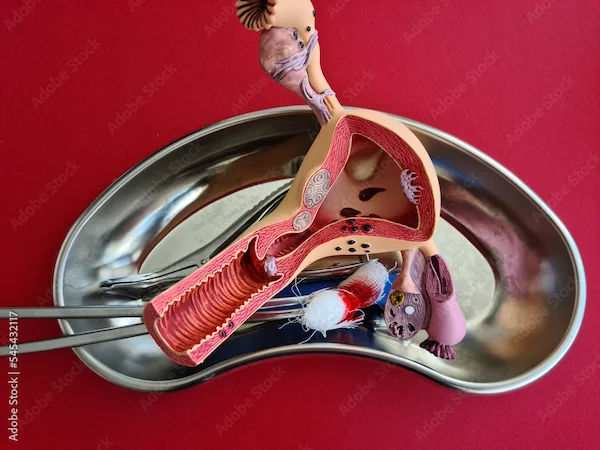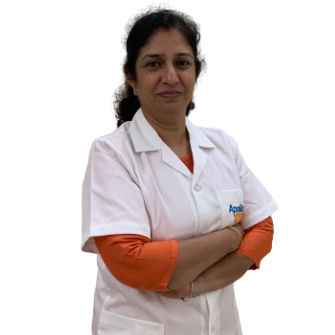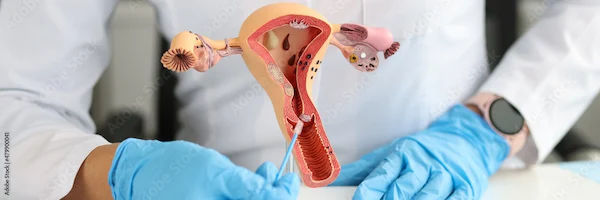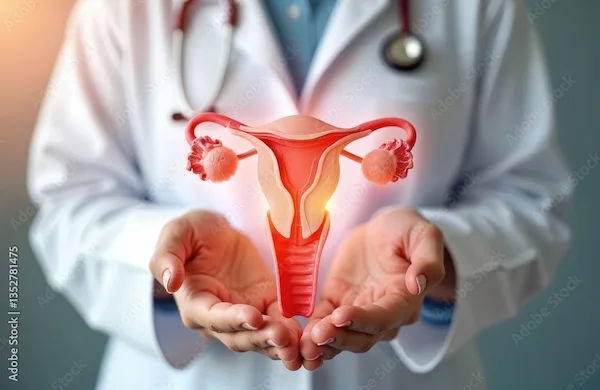Laparoscopic Total Hysterectomy Before And After
Learn what to expect before and after a laparoscopic total hysterectomy, from preparation tips to recovery stages. Get guidance on healing, side effects, and when to consult a doctor for a smooth, informed post-surgery experience.

Written by Dr.Sonia Bhatt
Last updated on 3rd Jul, 2025

Introduction
Undergoing a laparoscopic total hysterectomy can be a significant decision for many women. Whether it's due to fibroids, endometriosis, chronic pelvic pain, or other medical conditions, understanding the procedure and recovery process can help ease anxiety and ensure a smoother experience.
This article will guide you through what happens before and after a laparoscopic hysterectomy, along with tips for a healthy recovery.
What is a Laparoscopic Total Hysterectomy?
A laparoscopic total hysterectomy is a minimally invasive surgical procedure where the uterus, and sometimes the cervix, is removed through small incisions in the abdomen. Unlike traditional open surgery, this method uses a laparoscope, which is a thin tube with a camera, and other specialised tools, leading to less pain, smaller scars, and faster recovery.
Common reasons for undergoing a hysterectomy include:
Uterine fibroids – Non-cancerous growths that can cause heavy bleeding, pain, or pressure.
Endometriosis – A condition where tissue similar to the uterine lining grows outside the uterus, often leading to pain and infertility.
Pelvic inflammatory disease (PID) – A serious infection of the reproductive organs that may result in chronic pain or complications.
Chronic pelvic pain – Persistent pain that hasn’t responded to other treatments.
Cancer prevention or treatment – In cases of uterine, cervical, or ovarian cancer, or when there’s a high genetic risk.
Your doctor will discuss whether this is the best option for you.
Consult Top Specialists for Personalised Care
Before the Surgery: Preparation Tips
Preparing for a hysterectomy involves more than just scheduling the procedure. Taking a few thoughtful steps before surgery can ease recovery and reduce complications. Here are some essential tips to help you get ready:
1. Medical Evaluation
Before the surgery, your doctor will conduct a thorough medical evaluation to ensure you're fit for the procedure and to plan the best surgical approach. This may include:
Blood tests
Pelvic ultrasound or MRI
Pap smear if the cervix is being removed
A discussion about whether to keep or remove the ovaries (oophorectomy)
2. Lifestyle Adjustments
In the weeks leading up to surgery, making a few lifestyle changes can support a smoother recovery and better surgical outcomes:
Quit smoking if applicable, as it can significantly improve healing.
Maintain a healthy diet, especially one rich in fibre to avoid post-operative constipation.
Arrange for help at home, as you’ll need plenty of rest for at least 1–2 weeks.
3. The Day Before Surgery
The day before your procedure, there are a few final steps to follow to ensure everything goes smoothly:
Follow fasting instructions—typically, no food or drink after midnight.
Wear comfortable clothing on the day of surgery.
Avoid wearing jewellery, makeup, or nail polish.
After Surgery: Recovery and Care
Recovering from a hysterectomy takes time, and understanding what to expect at each stage can help you heal more comfortably and confidently. Here’s a breakdown of the recovery journey and how to care for yourself along the way:
1. First 24-48 Hours
In the first couple of days after surgery, you’ll still be under the effects of anaesthesia and may need close monitoring at the hospital:
You may feel groggy or tired due to the anaesthesia.
Mild pain or discomfort is normal, and prescribed painkillers will help manage it.
Shoulder pain can occur from the gas used during laparoscopic surgery, but fades in 1-2 days.
You’ll be encouraged to walk gently to prevent blood clots.
2. First Week at Home
Once you’re home, rest becomes a priority—but so does light activity to promote healing:
Rest but stay lightly active; short walks help recovery.
Avoid lifting heavy objects heavier than 5 kg for 4-6 weeks.
No driving until cleared by your doctor, which is usually 1-2 weeks.
Watch for signs of infection such as fever, severe pain, or unusual discharge.
3. Long-Term Recovery (4-6 Weeks)
As your body continues to heal, you’ll gradually be able to return to your normal routine:
Gradually resume normal activities but listen to your body and avoid overexertion.
No sexual intercourse until your doctor approves; usually 6 weeks.
Pelvic floor exercises like Kegels can help strengthen muscles.
Diet and Lifestyle Tips for Faster Healing
Your body needs the right fuel and gentle activity to recover well after a hysterectomy. Thoughtful choices in diet and lifestyle can make a noticeable difference in how quickly and comfortably you heal. Here are some key tips to support your recovery:
1. Eat Well
A nourishing diet is essential for healing and maintaining energy during recovery:
High-fibre foods like fruits, vegetables, and whole grains to prevent constipation.
Lean proteins such as chicken, fish, eggs, or beans for tissue repair.
Stay hydrated by drinking plenty of water and soothing herbal teas.
2. Avoid
Certain foods and substances can slow healing or cause discomfort, so it’s best to steer clear of:
Spicy or greasy foods which can cause bloating.
Alcohol and caffeine may interfere with healing.
3. Gentle Exercises
Light movement helps keep your body active and prevents complications without straining your healing tissues:
Start with short walks and gradually increase your distance as you feel stronger.
Practise deep breathing exercises to prevent lung complications.
Possible Side Effects and When to Call a Doctor
It’s normal to experience some side effects after a hysterectomy as your body adjusts and heals. Most symptoms are mild and temporary and usually not a cause for concern:
Mild vaginal spotting which can continue up to 6 weeks.
Tiredness may last a few weeks.
Some symptoms may indicate complications. Seek medical help if you have:
Heavy bleeding especially if you're soaking through a pad in an hour
Severe pain or swelling
Fever above 100.4°F (38°C)
Difficulty urinating or foul-smelling discharge
Emotional Well-being After Hysterectomy
It’s normal to feel a mix of emotions—relief, sadness, or even anxiety about changes in your body. If you experience:
Mood swings (hormonal changes can affect emotions).
Depression or anxiety (talk to a therapist if needed).
Support groups (online or in-person) can help you connect with others who’ve had similar experiences.
When to Consult a Doctor?
If you’re considering a hysterectomy or have concerns about recovery, Apollo 24|7 offers expert consultations. You can book an appointment with a gynaecologist to get personalised advice on surgery and recovery.
Final Thoughts
A laparoscopic total hysterectomy is a safe and effective procedure with a faster recovery than traditional surgery. By following your doctor’s advice and taking care of yourself, you can return to a healthy, active life. Every woman’s recovery is different—listen to your body and don’t rush the healing process.
If you have any concerns, reach out to a healthcare professional for guidance.
Consult Top Gynaecologists
Consult Top Specialists for Personalised Care

Dr. Veena H
Obstetrician and Gynaecologist
16 Years • MBBS DGO
Bangalore
Apollo 24|7 Clinic - Karnataka, Bangalore

Dr. Priyanka Surisetty
Obstetrician and Gynaecologist
8 Years • MBBS, DGO
Visakhapatnam
Apollo 24|7 Clinic - Andhra Pradesh, Visakhapatnam

Dr. Shailaja L
Obstetrician and Gynaecologist
16 Years • MBBS, MS
Bangalore
Apollo 24|7 Clinic - Karnataka, Bangalore

Dr. Jasmine Sarah Abraham
Obstetrician and Gynaecologist
14 Years • MBBS, MS (Obstetrics & Gynaecology), MRCOG (Obstetrics & Gynaecology) (Fellowship in Minimal Invasive Surgery (Gynaecology)
Bengaluru
Unicorn Multi-Speciality Clinic, Bengaluru

Dr. Ritika Khurana
Obstetrician and Gynaecologist
16 Years • MBBS, DGO(GYNAECOLOGY AND OBSTETRICS)
Pune
Dr Rupali and Dr Ritika, Pune
Consult Top Gynaecologists

Dr. Veena H
Obstetrician and Gynaecologist
16 Years • MBBS DGO
Bangalore
Apollo 24|7 Clinic - Karnataka, Bangalore

Dr. Priyanka Surisetty
Obstetrician and Gynaecologist
8 Years • MBBS, DGO
Visakhapatnam
Apollo 24|7 Clinic - Andhra Pradesh, Visakhapatnam

Dr. Shailaja L
Obstetrician and Gynaecologist
16 Years • MBBS, MS
Bangalore
Apollo 24|7 Clinic - Karnataka, Bangalore

Dr. Jasmine Sarah Abraham
Obstetrician and Gynaecologist
14 Years • MBBS, MS (Obstetrics & Gynaecology), MRCOG (Obstetrics & Gynaecology) (Fellowship in Minimal Invasive Surgery (Gynaecology)
Bengaluru
Unicorn Multi-Speciality Clinic, Bengaluru

Dr. Ritika Khurana
Obstetrician and Gynaecologist
16 Years • MBBS, DGO(GYNAECOLOGY AND OBSTETRICS)
Pune
Dr Rupali and Dr Ritika, Pune



